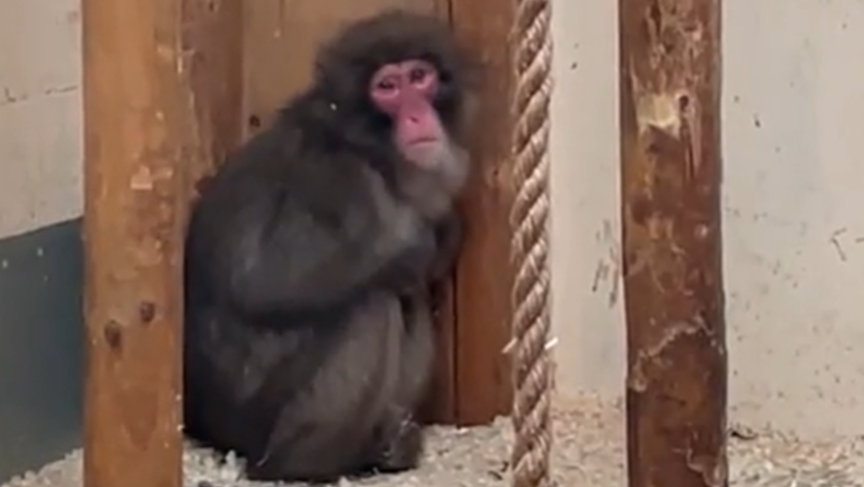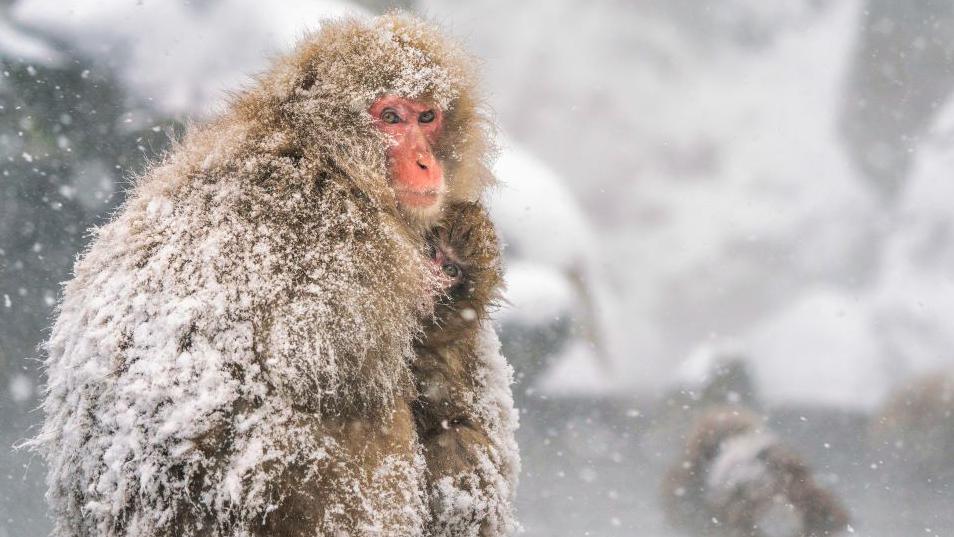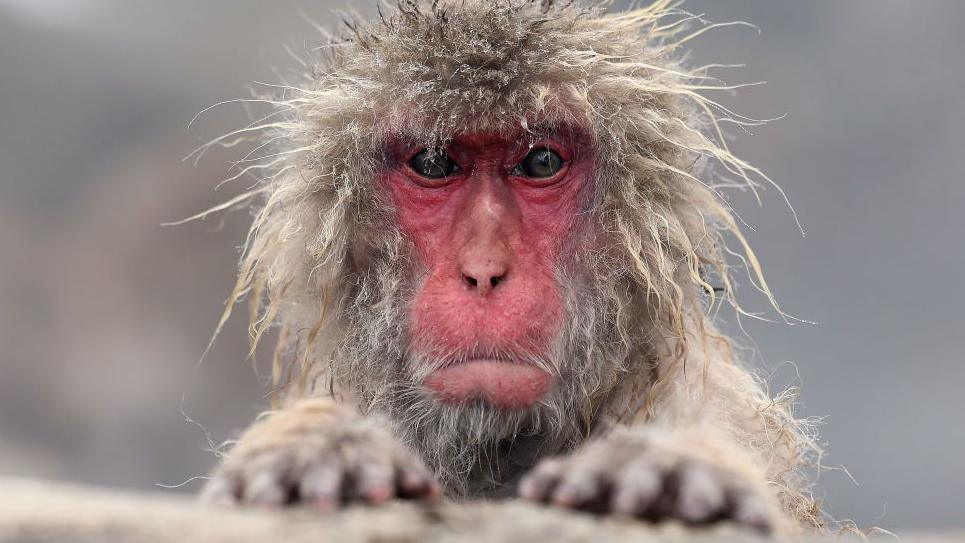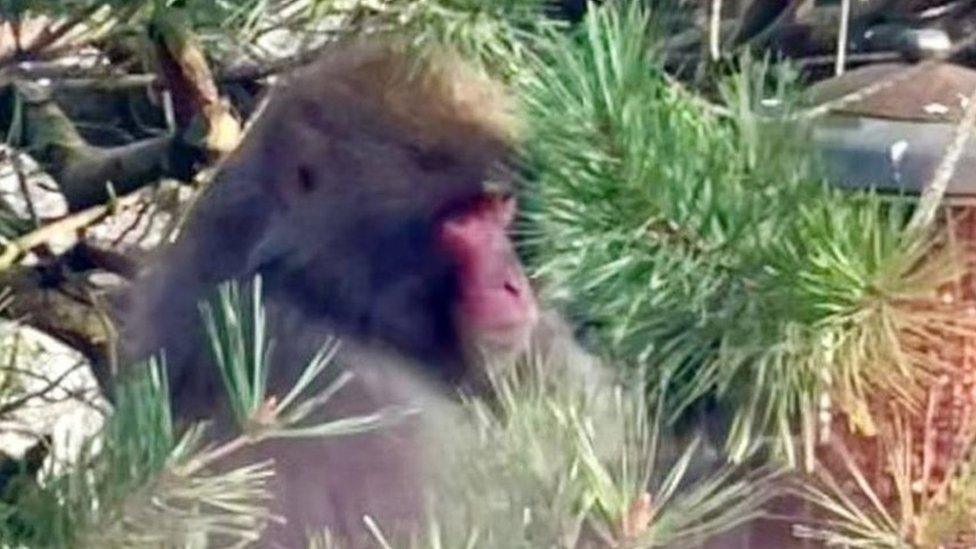Escaped monkey caught in Highland garden

Honshu the Japanese macaque back at the Highland Wildlife Park on Thursday
- Published
A monkey which had been missing in the Highlands for more than five days has been recaptured.
The seven-year-old male Japanese macaque - called Honshu - escaped from the Highland Wildlife Park at Kincraig, near Aviemore, on Sunday.
Stephanie Bunyan, who lives nearby, spotted the monkey in her garden on Thursday morning and contacted the Royal Zoological Society of Scotland (RZSS).
A drone team observed the animal until he was shot with a tranquiliser dart and taken back to the park.

Stephanie Bunyan said she saw a 'little, sad macaque' looking through her window
RZSS, which runs the Highland Wildlife Park, received Ms Bunyan's call at about 10:00.
She told BBC Scotland News: "I saw a little, sad macaque just looking straight in the window at me.
"I don't know if he wanted to come in or not."
Alan Bannon, RZSS head of communications, said it was a relief to finally capture the monkey.
He said: "We got a phone call from a member of the public saying they had spotted the animal in their garden helping himself to a bird feeder."
On the trail of the escapee monkey in the Scottish Highlands
Mr Bannon said the monkey had been brought safely back to the park where it would be checked by vets before being given a "good feed".
Keith Gilchrist, the wildlife park's living collections operations manager, said Honshu would be reintroduced to other adults within the troop.
He added: “We want to thank everyone who has helped during the process and will continue to share any further updates.”
The Japanese macaque - also known as a snow monkey - is about the size of a medium-sized dog and is part of a troop of 37 animals.
The RZSS said the escapee may have been trying to avoid a fight with others in the group.
The troop is in the midst of its breeding season and keepers said tensions could sometimes run high.
The RZSS said the monkey was unlikely to have posed a threat to the public or pets, but had asked that people not to approach it.
Highland Council said that as a precaution, children at Alvie Primary School in Kincraig stayed inside during Monday's morning break.
But the pupils were later able to play outside following an update from the Highland Wildlife Park team.
The search effort included patrols by RZSS staff and drones, including one fitted with thermal imaging equipment and operated by a Cairngorm Mountain Rescue Team.

In the wild, Japanese macaques live in a range of habitats
In the wild in Japan, snow monkeys live in a range of habitats including cold mountain ranges.
Monkey troops in some parts of Japan bathe in natural hot springs to escape the worst of the winter cold.
Speaking to BBC radio Good Morning Scotland, Dr Kirsty Graham, a research fellow at the University of St Andrews, said the monkeys can survive temperatures of -40C.
The species are opportunistic omnivores and feed on fruit, bird eggs, leaves, tree bark, snails and crabs.
- Published30 January 2024

- Published28 January 2024
